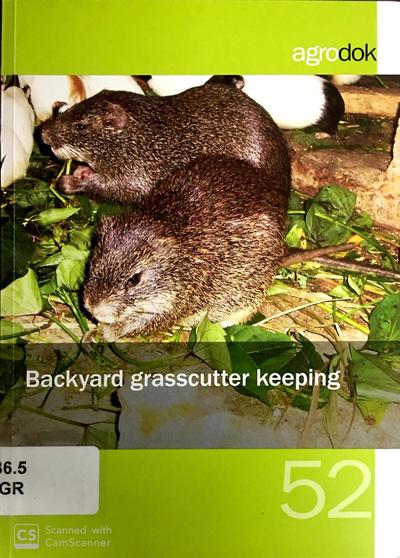
Domestication of the grasscutter (or cane rat) is becoming a success story in parts of Sub-Saharan Africa, as its meat is tasty and popular and sells at good prices. Liberally illustrated with photos and drawings, this timely Agrodok gives a clear description of the techniques and potential pitfalls of grasscutter rearing at the small-scale farm level.
Grasscutters occur in the wild in the bush and savannah lands of West, Central and South-East Africa. Because of its size and taste, the animal is heavily hunted for its meat – almost to the point of extinction in some areas. In some West and Central African countries this has led to co-ordinated attempts to raise these animals in captivity.
Farmers’ experiences, combined with research into rearing grasscutters, have resulted in techniques that are proving both successful and profitable. After the initial investment in stable(s) and stock, care and maintenance are relatively easy and feed can be cheap. What is more, producing high-quality grasscutter meat for household use and/or for the market can be easily integrated into low-input ecological agriculture.
Aimed at farmers, extension workers and rural development officers, this up-to-date guide provides a wealth of information for those wishing to diversify their farms or considering rearing grasscutters for market. Chapters cover topics such as biology, distribution and reproduction; selection and domestication; housing, nutrition and feeding; and slaughtering, processing and marketing.
Publication Details
- Published: 2014
- Publisher: Agromisa
- ISBN-13: 9789085731443
- Dewey Decimal: 636.5
- ECHO Library: 636.5 AGR